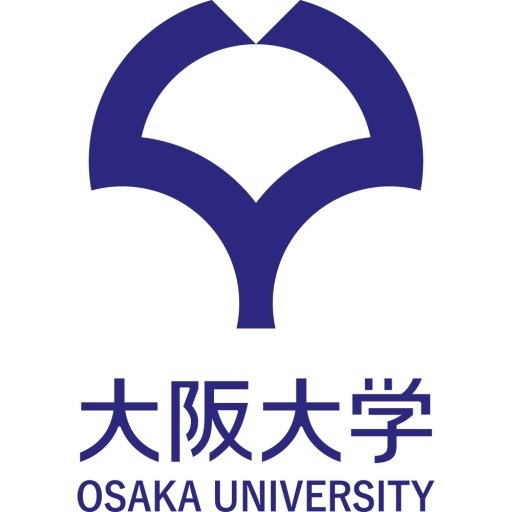Photos of university / #university_of_tsukuba
The Bachelor's degree program in Physics at the University of Tsukuba offers a comprehensive education designed to develop students' understanding of the fundamental principles governing the natural world. This program provides a solid foundation in classical and modern physics, including mechanics, electromagnetism, thermodynamics, quantum physics, and statistical physics. Students are encouraged to engage in experimental and theoretical research, fostering critical thinking and problem-solving skills necessary for advanced scientific pursuits. The curriculum combines rigorous coursework with laboratory work, allowing students to apply theoretical concepts to real-world scenarios and develop practical skills in data analysis, instrumentation, and scientific communication. Throughout their studies, students have opportunities to participate in cutting-edge research projects, often collaborating with faculty members who are experts in their fields, including condensed matter physics, astrophysics, particle physics, and applied physics. The program emphasizes not only academic excellence but also the development of communication skills, teamwork, and the ability to adapt to rapidly evolving scientific technologies. Graduates of this program are well-equipped for careers in research, technology development, education, or to pursue further studies at the graduate level. The University of Tsukuba's Physics program benefits from its state-of-the-art laboratories, a vibrant academic community, and partnerships with industries and research institutions, offering students a stimulating environment to explore the physical universe and contribute to scientific advancement.
- Course requirements : “Colloquium on Pure and Applied Sciences”, 1 credit: and 1 credit or more from the other “fundamental subject” courses. 12 credits from “special research” in their own field. Total of 30 credits or more including those specified above.
- M.S. thesis : After having acquired the required credits of courses and seminars, the student should submit a M.S. thesis and take an oral examination.
Applicants must meet the following criteria to be eligible to apply.
- Have graduated from a four-year university program
- Expect to graduate from a four-year university program by the end of March 2017
- Have completed 16 years of formal education by the end of March 2017
- Be persons recognized in the individual qualification screening process as having equivalency to the conditions above.
- Be individuals designated by the Ministry of Education
Application documents
- Application form
- A copy of the picture pgfe of your passport
- Examination fee
- Graduation certificate
- Degree certificate
- Transcripts
- TOEFL/TOEIC/IELTS Score
The University of Tsukuba offers a comprehensive range of financing options for students enrolled in its Physics degree programs. Prospective and current students can access various scholarships, grants, and financial aid designed to support their academic journey. The university provides scholarships specifically dedicated to international students, including the Tsukuba International Student Scholarship, which offers partial or full tuition waivers based on academic merit and financial need. Additionally, there are government-sponsored scholarships such as the Japanese Government (MEXT) Scholarship, available to international students, covering tuition fees and providing a monthly stipend to assist with living expenses. Domestic students may qualify for government and prefectural scholarships or financial aid programs tailored to Japanese residents.
Apart from external scholarships, the University of Tsukuba offers internal financial aid programs, such as tuition fee reduction schemes and repayment deferment options, to help students manage their educational expenses effectively. Work-study opportunities are also available on campus, allowing students to engage in part-time employment within the university facilities or affiliated organizations, thus gaining practical experience while earning supplemental income. The university’s Financial Aid Office provides counseling and guidance on applying for these scholarships and aid programs, ensuring that students are well-informed about their options and the application processes.
Furthermore, students are encouraged to explore external funding sources from private foundations, corporate sponsors, and international organizations that support students pursuing physics and related sciences. Many of these external grants are merit-based, requiring a strong academic record and research achievements. The university also supports student entrepreneurship and innovation activities, which can sometimes provide additional financial resources or stipends for student-led projects or startups related to physics research.
In conclusion, students enrolled in physics programs at the University of Tsukuba benefit from a variety of financing options aimed at reducing financial barriers and enhancing their educational experience. The university’s commitment to supporting students financially is evident through its comprehensive scholarship offerings, partnerships with external funding agencies, and employment opportunities, all designed to foster academic success and scientific research in the field of physics.
The Bachelor’s degree program in Physics at the University of Tsukuba offers students a comprehensive education in the fundamental principles of physics, encompassing classical mechanics, electromagnetism, thermodynamics, quantum mechanics, and relativity. The program is designed to develop students’ analytical thinking, problem-solving skills, and experimental abilities, preparing them for careers in research, education, engineering, or related fields. Students have opportunities to participate in cutting-edge research projects, utilizing advanced laboratories and equipment under the guidance of experienced faculty members. The curriculum includes both theoretical coursework and practical training, with an emphasis on applying physics knowledge to real-world problems. The program encourages international exchange and collaboration, with options for studying abroad and engaging with global scientific communities. Graduates will be equipped with a solid foundation in physics, complemented by interdisciplinary skills and a problem-oriented mindset, enabling them to contribute to technological and scientific advancements. The university supports student development through seminars, workshops, and extracurricular activities related to physics and science communication. Overall, the Physics program at the University of Tsukuba aims to cultivate skilled physicists who can pursue further academic research or enter industry sectors such as electronics, materials science, information technology, and renewable energy.










